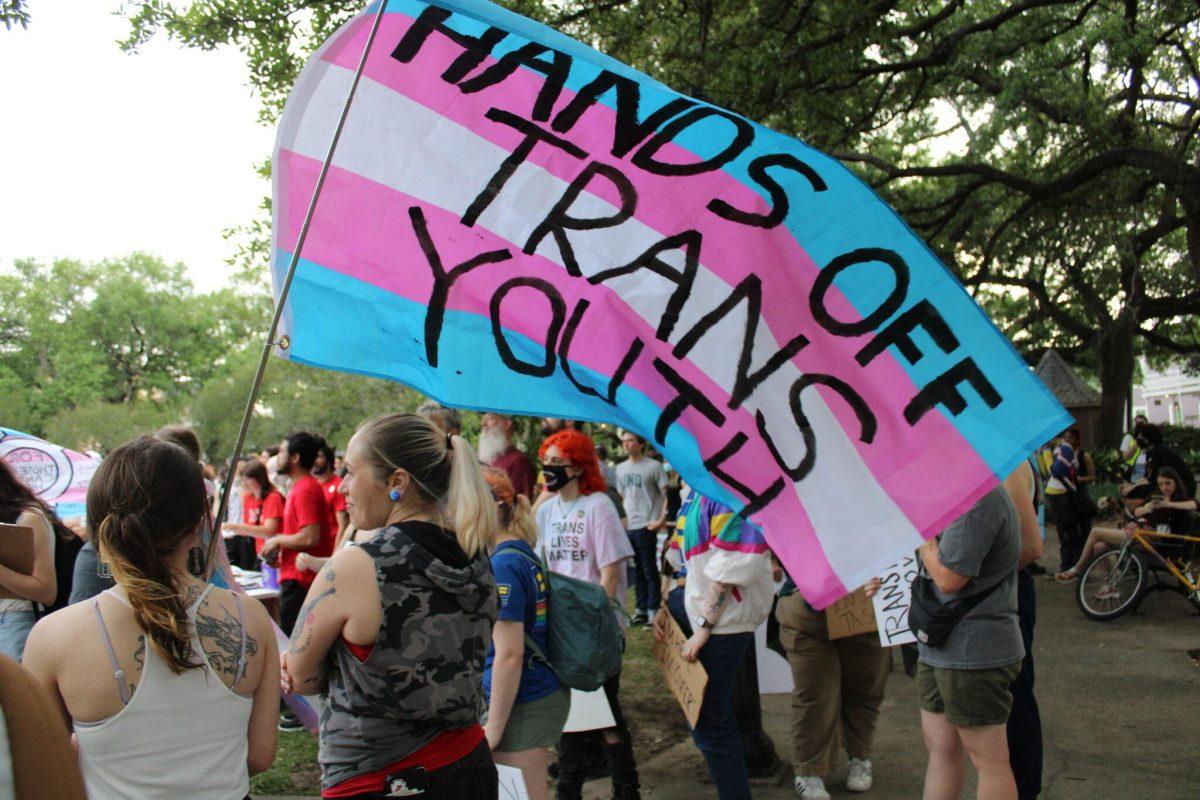On Jan. 8, LGBTQ+ civil rights organization Lambda Legal announced a lawsuit against the state of Louisiana on behalf of five families seeking to block a ban on gender affirming care for minors in the state.
Joined by Harvard Law School’s Center for Law and Policy Innovation and Louisiana law firm Schonekas, Evans, McGoey & McEachin LLC, the legal consortium alleges that Act 466 “is unconstitutional under the Louisiana state constitution and that it violates the rights of transgender adolescents and their parents to dignity and equal protection under the law,” per a public statement.
The act, which took effect Jan. 1, will stop minors from receiving any form of gender-affirming care. This includes puberty blockers, hormone therapy and gender reassignment surgery. The Association of American Medical Colleges say gender-affirming care is “designed to support and affirm an individual’s gender identity.” Sometimes, that care can just be counseling.
The law has caught the attention of LSU students.
“I think trans kids deserve to make decisions about their healthcare with their parents, just like in any other case surrounding children and healthcare,” said mass communication major Ella Uffman.
Giselle Rauda, a history freshman with a concentration in secondary education backed the lawsuit.
Rauda said, “My view on this is that they should sue the state since they are denying a human person their right to gender-affirming care. In the end, it’s not up to the state to decide; it’s the actual person since they are the ones being affected by this.”
Gender-affirming care is often sought by those experiencing gender dysphoria, a condition described by the National Health Service as “a sense of unease that a person may have because of a mismatch between their biological sex and their gender identity.” It adds, “this sense of unease or dissatisfaction may be so intense it can lead to depression and anxiety and have a harmful impact on daily life.”
According to a study from 2020, “82% of transgender individuals have considered killing themselves, and 40% have attempted suicide, with suicidality highest among transgender youth.” A different study found that “gender-affirming medical interventions were associated with lower odds of depression and suicidality over 12 months.”
Former Gov. John Bel Edwards vetoed the bill in July but was overridden by the state Legislature.
“I firmly believe that the legislature has overstepped its authority and is interfering in critical healthcare decisions that only parents should make in consultation with their children and their children’s physicians and psychologists,” said Edwards in a message documented by PBS.
Computer engineering freshman Claire Bonius said in a phone interview, “I think that it is great that transgender youth are taking a stand and suing the state for restricting their rights. The government should have no say in what type of health care is accessible for citizens. Leave them alone!”
Louisiana is not the first state to try to ban gender-affirming care, and it likely won’t be the last. According to the Human Rights Campaign, there have been “more than 125 gender-affirming care bans,” around 30 anti-trans bathroom bills, around 45 anti-drag ban bills and “more than 100 anti-LGBTQ+ curriculum censorship bills.”
According to Reuters, multiple U.S. district courts have stopped laws like Louisiana’s anti-gender affirming care ban citing the 14th Amendment and the constitutional guarantee of equal protection under the law.
Claire Hambrice, a mass communications major, said, “I definitely think the parents should get to decide, and they have every right to sue the state for banning access to gender-affirming care. Everyone has freedom of speech and a right to what they believe and need. Trans kids should get the same care that other kids get.”
“I believe trans healthcare should be a course of action between the patient and/or parent and their doctor,” said political science freshman Katie Rabalais.
The fate of the Act remains unclear at the moment. The case will be taken up by the Civil District Court for the Parish of Orleans, and the full complaint can be read here.







